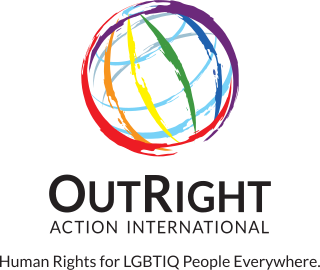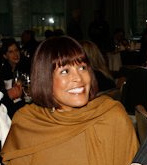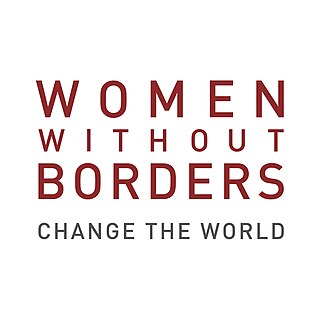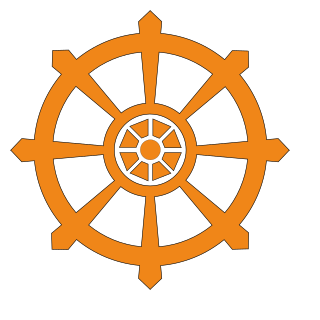Related Research Articles
Advocacy is an activity by an individual or group that aims to influence decisions within political, economic, and social institutions. Advocacy includes activities and publications to influence public policy, laws and budgets by using facts, their relationships, the media, and messaging to educate government officials and the public. Advocacy can include many activities that a person or organization undertakes, including media campaigns, public speaking, commissioning and publishing research. Lobbying is a form of advocacy where a direct approach is made to legislators on a specific issue or specific piece of legislation. Research has started to address how advocacy groups in the United States and Canada are using social media to facilitate civic engagement and collective action.
An opinion poll, often simply referred to as a survey or a poll, is a human research survey of public opinion from a particular sample. Opinion polls are usually designed to represent the opinions of a population by conducting a series of questions and then extrapolating generalities in ratio or within confidence intervals. A person who conducts polls is referred to as a pollster.

Gross National Happiness (GNH), sometimes called Gross Domestic Happiness (GDH), is a philosophy that guides the government of Bhutan. It includes an index which is used to measure the collective happiness and well-being of a population. Gross National Happiness Index is instituted as the goal of the government of Bhutan in the Constitution of Bhutan, enacted on 18 July 2008.
Byllye Yvonne Avery is an American health care activist. A proponent of reproductive justice, Avery has worked to develop healthcare services and education that address black women's mental and physical health stressors. She is best known as the founder of the National Black Women's Health Project, the first national organization to specialize in Black women's reproductive health issues. For her work with the NBWHP, she has received the MacArthur Foundation's Fellowship for Social Contribution and the Gustav O. Lienhard Award for the Advancement of Health Care from the Institute of Medicine of the National Academy of Sciences, among other awards.
The American Institute of Biological Sciences (AIBS) is a nonprofit scientific public charitable organization. The organization’s mission is to promote the use of science to inform decision-making and advance biology for the benefit of science and society.
NORC at the University of Chicago is one of the largest independent social research organizations in the United States. Established in 1941 as the National Opinion Research Center, its corporate headquarters is located in downtown Chicago, with offices in several other locations throughout the United States. Organized as an independent corporation, more than half its board comes from faculty and administration of the University of Chicago. It also jointly staffs some of the university's academic research centers.

OutRight International (OutRight) is an LGBTIQ human rights non-governmental organization that addresses human rights violations and abuses against lesbian, gay, bisexual, transgender and intersex people. OutRight International documents human rights discrimination and abuses based on their sexual orientation, gender identity, gender expression and sex characteristics in partnership with activists, advocates, media, NGOs and allies on a local, regional, national and international level. OutRight International holds consultative status with ECOSOC.

The Tahirih Justice Center, or Tahirih, is a national charitable non-governmental organization headquartered in Falls Church, Virginia, United States that aims to protect immigrant women and girls fleeing gender-based violence and persecution. Tahirih's holistic model combines free legal services and social services case management with public policy advocacy, training and education.
The Society for Women's Health Research (SWHR) is a national non-profit organization based in Washington, D.C. SWHR is the thought leader in research on biological differences in disease and is dedicated to transforming women's health through science, advocacy, and education.
The American Council on Education (ACE) is a nonprofit 501(c)(3) U.S. higher education association established in 1918. ACE's members are the leaders of approximately 1,700 accredited, degree-granting colleges and universities and higher education-related associations, organizations, and corporations. The organization, located in Washington, D.C., conducts public policy advocacy, research, and other initiatives related to key higher education issues and offers leadership development programs to its members and others in the higher education community.

Faye Wattleton is an American reproductive rights activist who was the first African American and the youngest president ever elected of Planned Parenthood Federation of America, and the first woman since Margaret Sanger to hold the position. She is currently Co-founder & Director at EeroQ, a quantum computing company. She is best known for her contributions to family planning and reproductive health, and the reproductive rights movement.

Children At Risk is a 501(c)(3) non-profit organization that drives changes for children through research, education, and influencing public policy. Founded in the year of 1989 in Houston, Texas and with an office opened in North Texas in 2011, the organization focuses on the well-being of children and educates legislators on the importance of solving children's issues while at the same time focusing on a variety of issues, and the primary issues are human trafficking, food insecurity, education, and parenting. Children At Risk also has a North Texas office in Dallas, Texas. Some of Children At Risk's previous primary issues were juvenile justice, mental health, and Latino children.
The Harvard Humanitarian Initiative (HHI) is an interfaculty Harvard University initiative focused on research, practice, and policy in the field of humanitarian assistance. HHI's mission is to relieve human suffering in war and disaster by advancing the science and practice of humanitarian response worldwide.
The Vermont Commission on Women (VCW) is a non-partisan Vermont government agency advancing rights and opportunities for women and girls. Sixteen volunteer commissioners, along with representatives from organizations concerned with women's issues, guide VCW's public education, coalition building, and advocacy efforts.

Women without Borders is an international advocacy and research organization for women. It is based in Vienna, Austria, and works with international partner organizations around the world. Dr. Edit Schlaffer founded WwB in 2002 with the goal of empowering women as agents of change. The Women without Borders Executive Board includes the Austrian artist Xenia Hausner. Women without Borders is largely funded by various Austrian Ministries, the Austrian Research Fund, the EU, and the US State Department.

Advocacy evaluation, also called public policy advocacy design, monitoring, and evaluation, evaluates the progress or outcomes of advocacy, such as changes in public policy.

The management of domestic violence deals with the treatment of victims of domestic violence and preventing repetitions of such violence. The response to domestic violence in Western countries is typically a combined effort between law enforcement, social services, and health care. The role of each has evolved as domestic violence has been brought more into public view.
Transgender Awareness Week, observed November 13 to November 19, is a one-week celebration leading up to the Transgender Day of Remembrance (TDoR), which memorializes victims of transphobic violence. TDoR occurs annually on November 20, when transgender advocates raise awareness of the transgender community through education and advocacy activities.

Tibet Justice Center, is an American legal association founded in 1989 that advocates human rights and self-determination for the Tibetan people.

The Sexual Violence and Misconduct Policy Act is a provincial law in British Columbia, Canada, requiring publicly funded post-secondary institutions in the province to implement a policy addressing campus sexual violence and sexual misconduct. Post-secondary institutions subject to Act 23 must develop a policy that covers several specific types of sexual misconduct involving a student, sexual misconduct prevention, and institutional responses to sexual misconduct. Post-secondary institutions must make their policies publicly available on their website. The legislation was passed in 2016 and came into force in 2017, by which time all post-secondary institutions subject to the Act were required to have developed a policy.
References
- ↑ "Center for the Advancement of Women". Soylent Communications. 2012. Retrieved 2 June 2012.
- ↑ "Faye Wattleton". Columbia University World Leaders Forum. Retrieved 2014-09-06.
- 1 2 3 4 5 "Collection: Center for the Advancement of Women records | Smith College Finding Aids". findingaids.smith.edu. Retrieved 2020-07-20.
 This article incorporates text available under the CC BY 3.0 license.
This article incorporates text available under the CC BY 3.0 license.